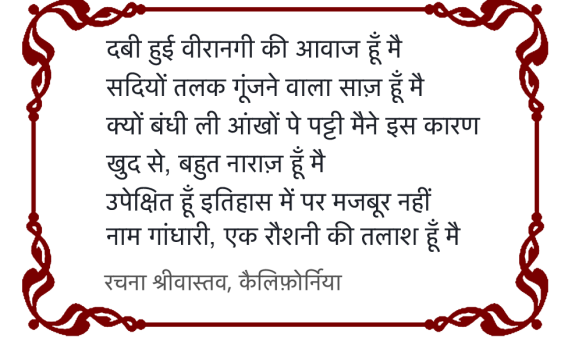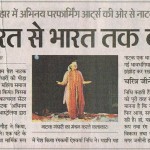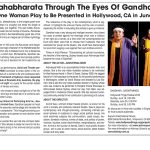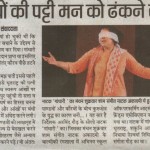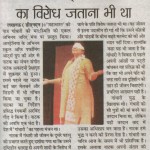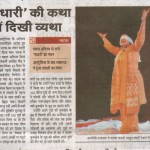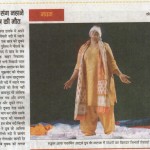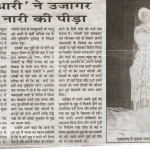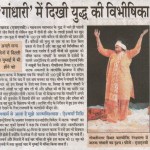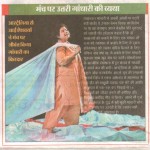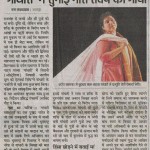
ABOUT US
Gandhari is one of the tragic characters of Mahabharata, the great epic of the Indian mythology and is very relevant to today’s contemporary socio-political context. She was born a princess, but was forced to marry a blind man, Dhritrashtra, much older to her. She had a boon that she will bear 100 sons which later became a curse. Bhishma, the granduncle of blind Dhritarashtra, forced the king of Gandhar to negotiate the marriage. Thus, Dhritarashtra was married to king of Gandhar’s intelligent daughter Gandhari. Before the marriage, Gandhari tied a strip of cloth on her eyes and vowed to lead a blindfolded life. Although it is believed she did so to experience the blind world of Dhritarashtra, Gandhari’s resolve to remain blindfolded was a silent protest against the power games and the forced marriage. Eventually she became the mother of 100 sons, the Kauravas, and one daughter, Dusshala. She remained blind to the power games, hatred and the growing animosity between her sons and their first cousins, the Pandavas, which later led to the great war of Kurukshetra.
The relevance of the play in the contemporary world is that it highlights the anti-war theme and the role of women, especially the mother in educating the society to give up violence. Gandhari was a very strong and intelligent woman, who closed her eyes to protest against her marriage which was a violation of her right as a woman, at a time when her contemporaries like Kunti and Madri were free to choose their husbands. As a result, Gandhari grew indifferent to everything that was happening with her sons and the Pandavas. She could not be of much help to the insult of the wife of the Pandavas, Draupadi.
Later, she refused to bless her sons for Kurukshetra and remained strong in her anti-war and pro-justice stand. But if she had been aware about her power and control over her sons, she would have used her strength to prevent the war and eventual death of her sons.
